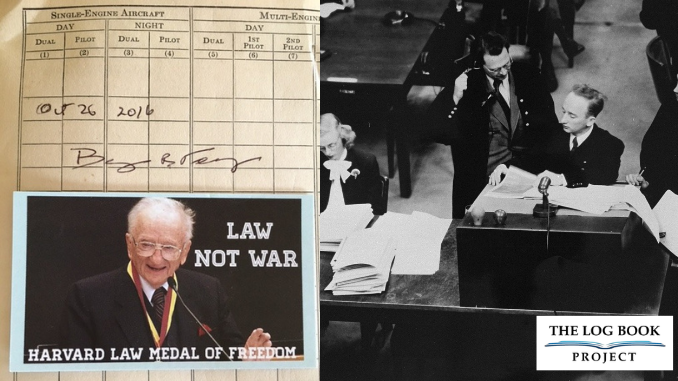
Benjamin Ferencz served with distinction during World War II as a soldier and later as a war crimes investigator for the U.S. Army. The following profile is an updated version (April 2025) from it’s original version as earlier published.
Military service
After graduating from Harvard Law School in 1943, where he had specialized in international law, Ferencz expected to pursue a legal career. However, like many young men at the time, he was drafted into the U.S. Army as part of the national wartime mobilization.
Despite his legal education, the Army initially assigned him to a combat unit—the 115th Anti-Aircraft Artillery Battalion—where he was trained as a soldier, not a lawyer.
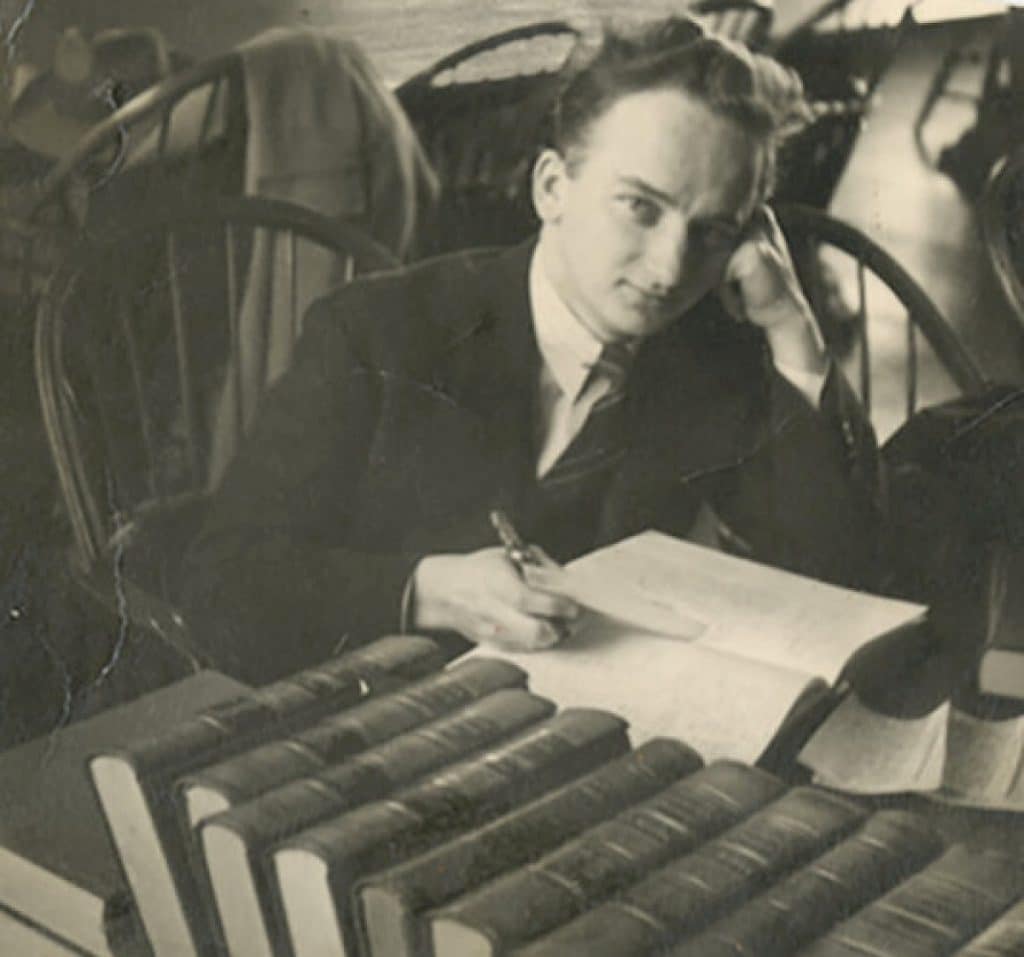
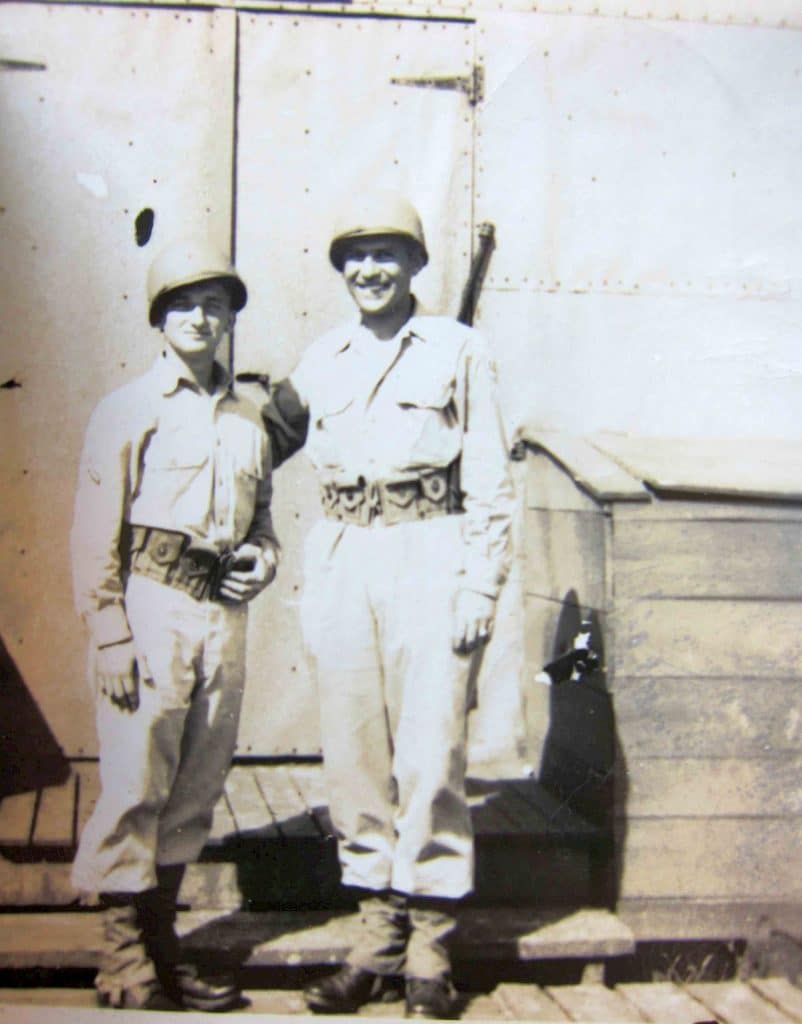
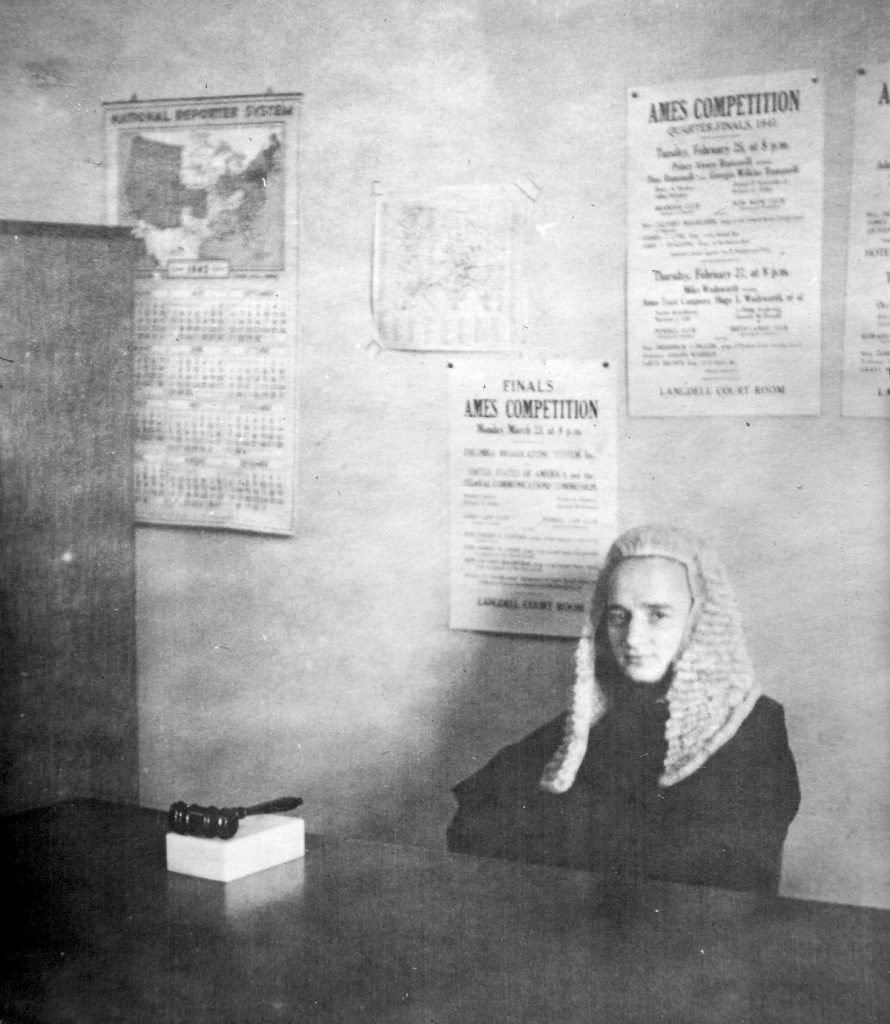
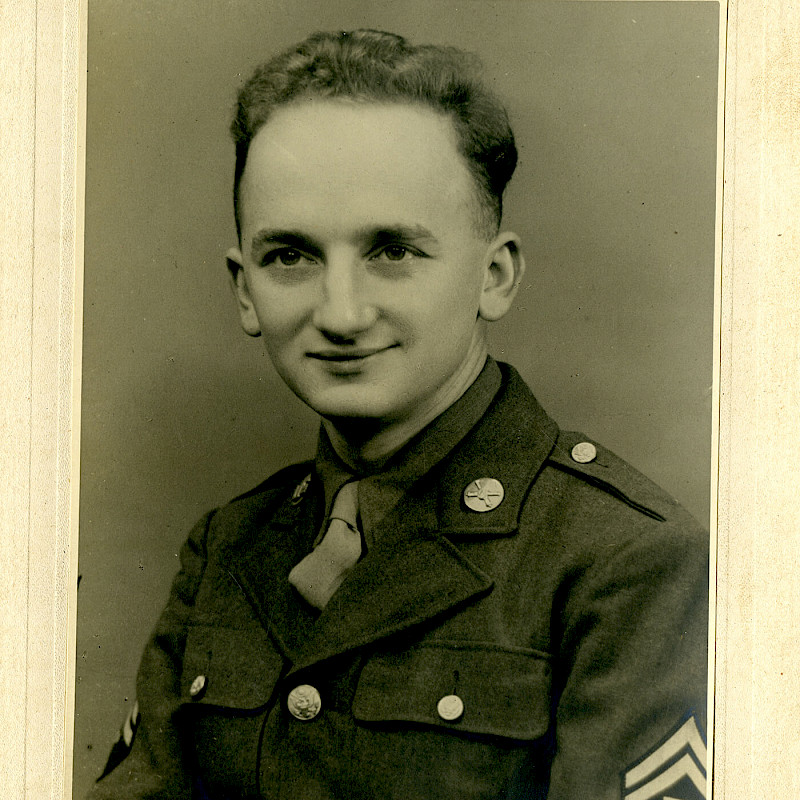
https://benferencz.org/gallery/1940s/
115th AAA Battalion in WWII
The battalion’s primary duty was to protect ground troops, supply convoys, and strategic locations from German air attacks using anti-aircraft guns.
The unit landed in Normandy shortly after D-Day (June 1944) and participated in the Normandy campaign, providing cover for advancing U.S. forces.
After the Normandy landings in June 1944, the Allies quickly moved to capture Cherbourg, a deep-water port at the northern tip of the Cotentin Peninsula in France. Cherbourg was vital for bringing in reinforcements and supplies.
As a member of the 115th AAA Battalion, Ferencz was very much involved in this defensive phase—helping to secure key logistical points like Cherbourg from Luftwaffe attacks.
War Crimes Investigations Unit
After some time in the field, Ferencz’s legal expertise was recognized, and he was transferred out of the 115th to join a special War Crimes Investigations Unit. This move was a pivotal moment in his career—and in the history of international justice.
As the war progressed and the Allies began to liberate concentration camps, the U.S. Army realized the need for trained legal minds to document Nazi atrocities and gather evidence for possible war crimes trials.
Ferencz’s transition was not planned—it emerged from circumstance and necessity as his legal training and fluency in German made him an ideal candidate.
He was transferred out of the 115th AAA Battalion and reassigned to a newly formed War Crimes Investigations Team under the Judge Advocate General’s Corps.
Investigating Nazi Crimes
In this new role, Ferencz was sent to liberated concentration camps such as Buchenwald, Mauthausen, and Dachau.
His task was to document the conditions, interview survivors, and collect evidence—including written orders, photographs, and records—that proved the organized nature of the crimes.
The work was emotionally harrowing. Ferencz later said that what he saw in those camps changed the course of his life.
In one of his most important discoveries, Ferencz found entire SS filing cabinets in the ruins of Nazi offices, filled with documentation of Einsatzgruppen killings—precise, bureaucratic records of mass murder.
The documentation Ferencz gathered laid the groundwork for multiple war crimes prosecutions—including the Einsatzgruppen Trial, where he would later serve as Chief Prosecutor.
Einsatzgruppen Trial
At just 27 years old, Benjamin Ferencz was appointed Chief Prosecutor in the United States v. Otto Ohlendorf, et al., commonly known as the Einsatzgruppen Trial (1947–1948).
This trial was one of the 12 subsequent Nuremberg Trials held after World War II. It was his first trial ever—but also one of the most significant in legal history.
The trial prosecuted 24 senior leaders of the Einsatzgruppen—mobile SS death squads responsible for the systematic murder of over 1 million civilians, mostly Jews, in Eastern Europe during the Nazi invasion of the Soviet Union.
Ferencz relied heavily on meticulous Nazi records, which he had helped uncover while investigating war crimes in the field.
His opening words in the trial were powerful and enduring:
Vengeance is not our goal, nor do we seek merely a just retribution. The case we present is a plea of humanity to law.
All 22 defendants who stood trial were convicted; 14 received death sentences (4 were eventually carried out).
Ferencz emphasizes that this was not just about punishing individuals but about establishing legal precedent for crimes against humanity and individual accountability for mass atrocities.
Personal impact
Ferencz saw unimaginable horrors: mass graves, corpses stacked in piles, emaciated survivors, and the remnants of industrialized murder. He later recalled that he had no time to cry, no time to process the horrors—only to work.
I saw crimes so horrendous that I could not sleep at night. The memories haunt me still.
Rather than break him, the trauma he witnessed forged a deep resolve. He realized that the best way to honor the victims was not revenge, but to establish justice through law, ensuring such crimes would not happen again.
The experience profoundly shaped his worldview and a clarity of purpose became the foundation of his life’s work: building legal mechanisms to replace war with law.
He dedicated his postwar life to promoting international law, justice, and peace, believing firmly in the principle of “law, not war.“
Legacy
The Einsatzgruppen Trial was a landmark in the development of international criminal law. The trial helped set a global legal standard: that those who commit mass murder—no matter how powerful—must be held accountable under law.
Ferencz became a lifelong advocate for a permanent international criminal court, which he lived to see realized with the establishment of the International Criminal Court (ICC) in 2002. In a statement paying tribute and joining the justice community in mourning the passing of Ferencz the following excerpt was included:
Mr Ferencz’s tireless work in the service of international criminal justice will have a permanent legacy. On 17 December 2020, he was decorated with the title of ‘Distinguished Honorary Fellow of the International Criminal Court’ and on this occasion, a bust depicting Mr Ferencz was unveiled at the Court’s premises.
Obtaining the signature
Learning about Mr Ferencz we were immediately intrigued, the last living prosecutor from the Nazi trials at Nuremberg following WWII…..let that sink in for a minute. How do one approach such a accomplished and distinguished figure?
In what only could be described as a shot in the dark an e-mail was sent off to Mr Ferencz, who readily responded positively to the request.
Upon return to St. Lucia from Trinidad after the signing of Wilfred Sidney Knox The Log Book would now make its first of many visits to the US.
At the time the log book was with Nick in St Lucia following the signing of Mr Wilfred Sidney Know. Mail service from the Caribbean islands isn’t an exact science leaving a lot to wish for. With only a narrow window of opportunity to rendevouz with Mr Ferencz in Florida the question was now how to pull this off?
Enter what we affectionately today have come to refer to as “Hogans Heroes”, Nick’s wonderful cousin Esther and her husband Jim Hogan. At the time visiting in St Lucia they agreed to take the book to Arizona, and from there mail it off to Mr Ferencz.
The plan worked, the book met Mr Ferencz who duly signed it and returned it by mail to the Hogans Heroes HQ.
KEEP SCREAMING!
Ever from his signature to his passing we remained in sporadic but frequent contact with Ferencz over e-mails. Despite his trauma, he maintained a remarkable positivity and hope, using his painful memories not as a burden but as a fuel for change.
Having been exposed to the worst of humanity gave him a mission: to build a world where such crimes could never happen again without consequence.
Eager to educate about the dangers of hate and the power of justice he was always unwavering and firm in the message he delivered. In one of the exchanges we asked what his thoughts for the future were. His response was that he sensed that there was a drive within the younger minds for a better world – and this gave him great encouragement for the future.
Ferencz did not mince his words, and he was certainly never afraid to call out contemporary leaders of today for war crimes. In this typical manner he delivered the one of the most profound messages to the project. A few simple wordthat have come to grow over time and deeply become embedded in the foundation we rest upon.
“..KEEP SCREAMING – KEEP BANGING THE DRUM!!”
Benjamin Ferencz 1920-2023
His mantra of “Law not War” speaks volumes to our future survival, if only we would listen!
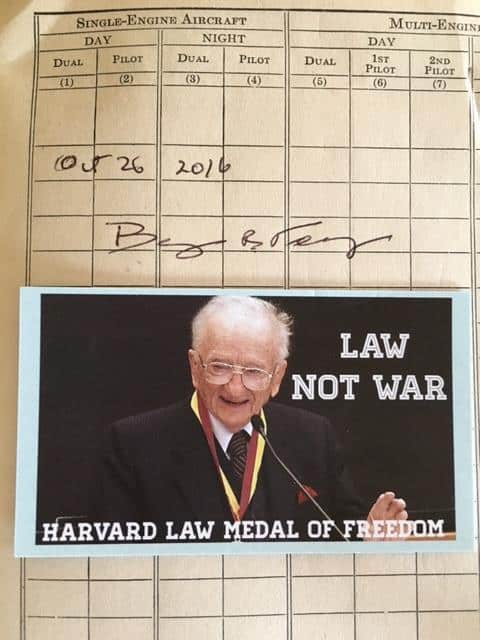
Here are some links:
https://www.facebook.com/nuremberglegacy/


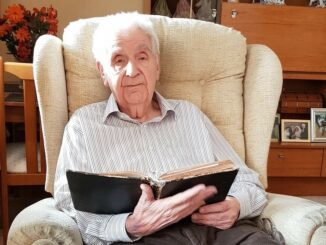
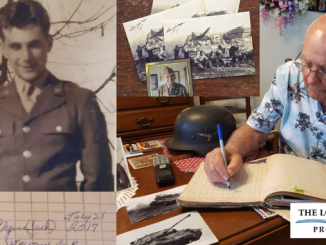
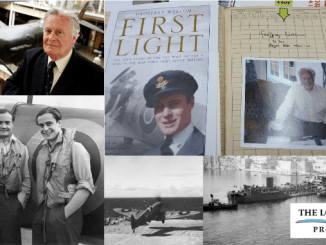
Be the first to comment